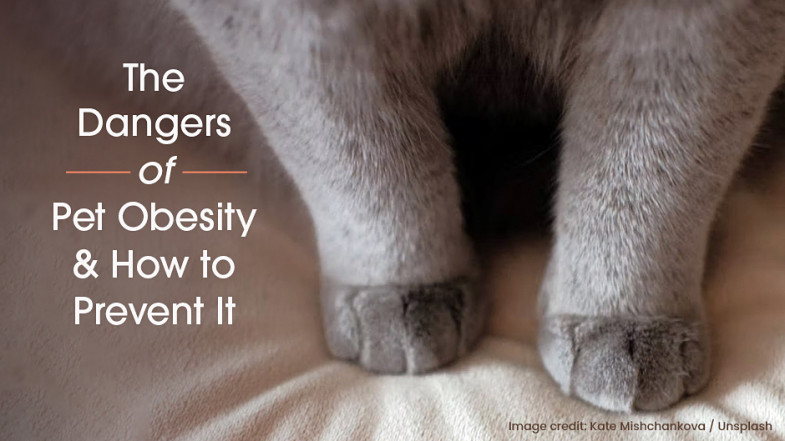Turner Veterinary Clinic News
The Dangers of Pet Obesity & How to Prevent It

Just like humans, our pets can suffer from obesity. As pet owners, it's our responsibility to make sure our animal companions stay at a healthy weight. Not only does obesity limit your pet's mobility, but it can also lead to a host of health problems and make your pet more susceptible to disease. Here's what you need to know about pet obesity and how to prevent it.
Hidden Signs of Pain: How to Recognize Discomfort in Your Pet

When our pets are sick or injured, they can’t tell us where it hurts or how they feel. However, there are subtle signs that can help you determine when your pet isn’t feeling well. Knowing how to recognize these hidden signs of pain is essential for getting your pet the help they need and improving their comfort.
An Itchy Problem - What You Need to Know About Your Pet's Skin

Is your pet constantly scratching? Pets can suffer from various skin issues that can cause extreme discomfort. Some pets may develop skin irritation as a result of allergies, while other pets may be itchy from fleas or other parasites. To provide your pet some itch relief, you’ll need to know what to look for and what is causing your pet’s problem.
Categories
Recent Posts

February is often associated with love, thanks to Valentine’s Day, and that makes it a perfect time to show extra care to the pets who mean so much to us. While treats and cuddles are always appreciated, one of the most meaningful ways to support your pet is by focusing on their health from the inside out. Dental health and heart health may seem like separate topics, but they are closely connected and both play a major role in your pet’s overall wellness.

When was the last time your pet saw the veterinarian for a checkup, not because they were sick, but just to stay healthy? Preventive care is one of the most important ways to give your pet a longer, happier life. It’s not about doing one big thing. It’s about the small, consistent steps that help avoid bigger health problems later on.

The holidays are full of sparkle, laughter, travel, and to-do lists a mile long. As joyful as this season can be, it often means busier schedules and less time for everyday routines. In the middle of the holiday rush, it's easy to overlook one very important family member: your pet.

If you're lucky enough to have a senior pet, you know just how special that bond becomes over time. From cozy afternoons on the couch to the look in their eyes that says, "I've known you forever," there’s a deep and quiet understanding between you. As pets get older, though, their needs change. Aging isn’t a disease, but it does require us to adapt how we care for our beloved companions.
The good news? With the right care and attention, senior pets can enjoy happy, healthy golden years. Here are seven simple but meaningful health tips to help your older dog or cat feel their best.

Has your dog seemed a little more reserved lately, or is your cat less interested in playing with their favorite toys? It can be easy to attribute these changes to aging or mood, but pets are experts at hiding discomfort. The good news is that there are plenty of subtle signals that can provide clues that your pet may be experiencing pain, and many treatment options to help alleviate this discomfort.